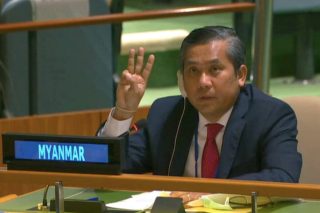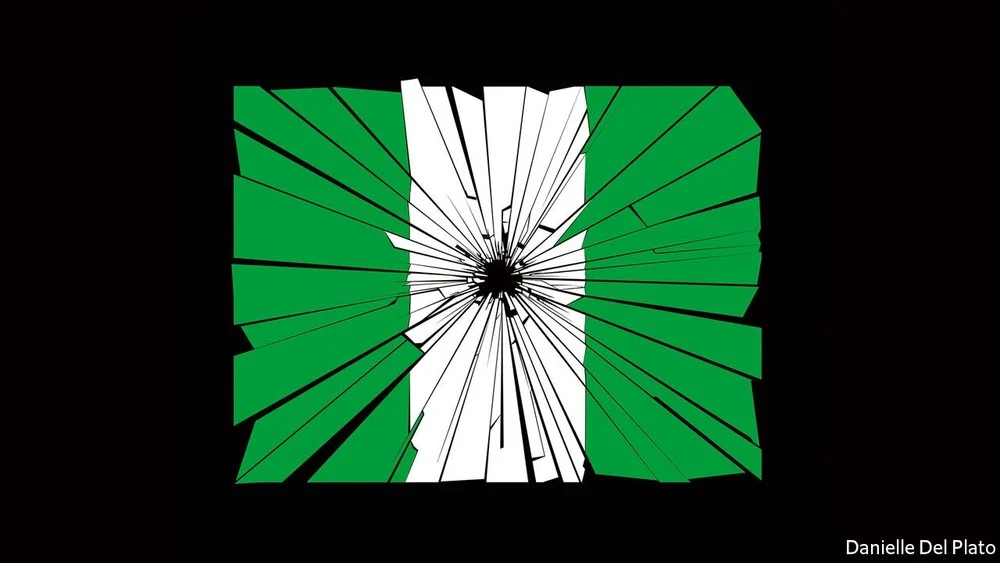In a step hailed by rights advocates, a Swiss court has charged former rebel leader Alieu Kosiah with murder, rape, recruiting child soldiers and cannibalism.
GENEVA — More than a quarter-century after the end of Liberia’s bloody civil wars, the notorious rebel commander Alieu Kosiah appeared in a Swiss criminal court on Thursday to face charges ranging from committing murder to eating the heart of a victim.
The hearing, in the tranquil Alpine town of Bellinzona, marks the first time any Liberian has been brought to trial specifically for atrocities in the first of the country’s back-to-back civil wars, from 1989 to 1997. Conflict erupted again from 1999 to 2003 and overall, the wars are believed to have caused a quarter-million deaths.
Liberian perpetrators have never been tried in their own country, even though a truth and reconciliation commission recommended more than a decade ago that a war-crimes court be set up. Former warlords walk free and hold some of Liberia’s highest offices.
Liberia’s president, the former international soccer player George Weah, pushed for the court to be established while he was in the opposition. A year into his presidency, he told the United Nations that he would respond to the “rising chorus of voices” calling for the court. But two years on, there is still no such court and no war-crimes prosecutions have occurred.
Instead, Liberian human rights activists say they have received threats from government security officers.
“The trial is extremely significant for Liberians and a powerful statement that courts thousands of miles away and many years after the event can play an important role combating these crimes,” said Balkees Jarrah, Human Rights Watch’s expert on international justice.
The trial also represents a milestone for Switzerland, as the first time its federal courts have taken up an international war crimes case in the nine years since they took over jurisdiction for such proceedings from military courts.
Mr. Kosiah commanded a unit of the United Liberation Movement of Liberia for Democracy, or ULIMO, which fought a brutal campaign against former Liberian president Charles Taylor’s National Patriotic Front.
An international tribunal in The Hague sentenced Mr. Taylor to 50 years in prison for war crimes in 2012 — but for atrocities committed in Sierra Leone, not Liberia. A Philadelphia court of appeals sentenced another ULIMO commander, Mohammed Jabbahteh, to 30 years in prison in September. That trial heard gruesome details of atrocities, but convicted Mr. Jabbahteh, known by his nom de guerre “Jungle Jabba,” for immigration fraud.

The Hague sentenced Liberia’s former President Charles Taylor in 2012 for war crimes committed in Sierra Leone. Pool photo by Koen Van Weel
Mr. Kosiah has been detained by Swiss authorities since his arrest in Bern in November 2014 on allegations of war crimes committed in the first Liberian civil war. He had moved to Switzerland and acquired permanent residence in 1997 but was detained after a complaint to the Swiss attorney general’s office by the Swiss-based group Civitas Maxima and a Liberian partner, the Global Justice and Research Project.
The charges against him include 18 murders, rape, forced recruitment of children to serve as soldiers, enslavement, looting and one act of cannibalism when he allegedly ate the heart of a victim, said Alain Werner, the director of Civitas Maxima, who is representing four of the seven Liberian victims due to testify in the case.
Mr. Kosiah has denied all charges against him and denied that ULIMO committed any atrocities.
Mr. Werner said he will draw on testimony heard in the Philadelphia trial of Mr. Jabbahteh to demonstrate a pattern of atrocities by the group. Mr. Jabbahteh acted with “bone-chilling cruelty,” the court ruled in that case. “None, including the jury that weighed impartially the mountain of evidence marshaled against Jabbateh, would view his conduct as anything less than monstrous.”
The trial is to proceed in two phases. The hearings that opened on Thursday dealt largely with procedural issues and arguments presented by Raphaël Jakob, one of four lawyers representing Liberian victims and witnesses in the case, to upgrade the charges against Mr. Kosiah to crimes against humanity. The proceedings are scheduled to continue until the end of next week with the hearing on Mr. Kosiah’s response to the charges.
The trial judges, however, invoking Covid-related safety concerns, postponed the hearing of evidence from seven Liberian victims and witnesses until a date in February, still to be set.
That delay, the latest in a series of postponements, adds significant pressure to the proceedings. Mr. Kosiah has spent six years in pretrial detention, an extraordinary length of time under Swiss judicial procedures, raising the possibility that the next review of his detention, due in March, could result in his release from custody.
The case has put a spotlight on Switzerland’s modest record of international war crimes prosecutions. Critics say the relevant international crimes unit is underfunded and understaffed, calling into question the political will of federal authorities to undertake complex and expensive war-crimes investigations.
The only previous conviction in Switzerland for international war crimes was 21 years ago, when a military court gave a life sentence to Fulgence Niyonteze, the mayor of a Rwandan town, for atrocities committed during the 1994 genocide in which as many as a million people were killed. His jail term was later reduced on appeal to 14 years.
Human rights activists know of three other war crimes-related investigations that the Swiss attorney general’s office is pursuing. These involve Khaled Nezzar, a former Algerian defense minister; Rifaat al-Assad, the aging uncle of Syrian president Bashar al-Assad; and Ousman Sonko, a former police official and interior minister of Gambia.
Of these, only Mr. Sonko is in Switzerland, where he applied for asylum in 2017. The authorities arrested him in May 2017 after a complaint submitted by a Swiss legal network, TRIAL International, and are investigating him for possible crimes against humanity, including torture.
Mr. Kosiah’s trial “should be the beginning not the end of Swiss efforts to pursue war crimes cases,” Ms. Jarrah said, noting the increasing number of universal jurisdiction cases taken up by European countries such as France, Germany and Sweden. “We look to Switzerland to follow in their footsteps. They have the tools to do more.”
Correction: Dec. 4, 2020
An earlier version of this article misidentified the lawyer who presented the case to upgrade the charges against Mr. Kosiah to crimes against humanity. It was Raphaël Jakob, not Alain Werner.
FEATURED IMAGE: A Swiss criminal court in Bellinzona, where a former Liberian rebel commander is on trial for war crimes. Emma Farge/Reuters
By Nick Cumming-Bruce/The New York Times






